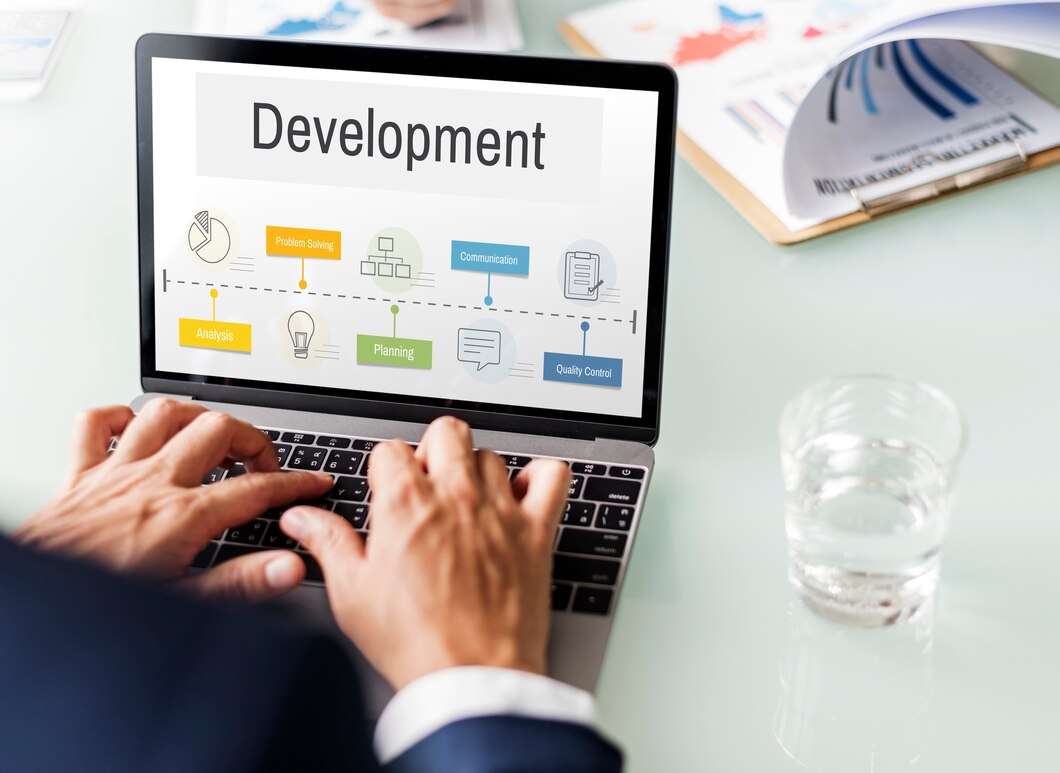The Role of Predictive Analytics in mobile apps
In today's fast-paced digital world, the competition among mobile app developers is more intense than ever. Users demand personalized experiences, lightning-fast responses, and innovative features. Predictive analytics has emerged as a game-changer for mobile app developers, enabling them to meet and exceed these expectations. By leveraging historical data, machine learning algorithms, and statistical techniques, predictive analytics provides actionable insights that can transform app development and user engagement strategies.
Enhancing User Experience Through Personalization

For mobile app developers, user experience is paramount. Predictive analytics empowers developers to create highly personalized user experiences by analyzing past user behavior. Apps can recommend products, services, or content tailored to individual preferences, increasing engagement and retention rates. For instance, streaming platforms like Netflix and Spotify use predictive algorithms to suggest movies, shows, or music that align with user tastes. Similarly, e-commerce apps analyze browsing and purchase history to recommend products that are most likely to interest users, enhancing both user satisfaction and sales.
Optimizing Marketing Strategies

Predictive analytics plays a crucial role in refining marketing strategies for mobile apps. By analyzing user data, developers can identify patterns and trends to predict which users are more likely to respond to specific campaigns. This enables developers to implement targeted marketing strategies, reducing costs and improving conversion rates. Additionally, predictive analytics can forecast user churn, allowing developers to take proactive measures to retain users. For example, offering discounts or personalized messages to at-risk users can help keep them engaged and loyal.
Improving App Performance and Stability

Another significant advantage of predictive analytics is its ability to anticipate potential technical issues within an app. By analyzing historical data, developers can predict when and where an app is likely to crash or encounter performance bottlenecks. This enables proactive optimization, ensuring a smoother user experience. Predictive analytics can also help mobile app developers identify usage patterns, such as peak traffic times, enabling them to scale resources effectively and avoid downtime.
Driving Revenue Growth

For mobile app developers, generating revenue is often a top priority. Predictive analytics provides valuable insights into user purchasing behaviors, enabling developers to design effective monetization strategies. For instance, in-app purchases, subscription models, and targeted advertisements can be optimized based on predictive insights. Predictive analytics also allows developers to segment users based on their likelihood to spend, making it easier to create tailored offers and pricing models that maximize revenue.
Streamlining App Development Processes

The app development process itself can benefit significantly from predictive analytics. By analyzing past project data, developers can estimate timelines, resource requirements, and potential risks more accurately. This improves project planning and reduces the likelihood of delays. Predictive analytics can also be used to analyze user feedback and reviews, identifying common pain points and areas for improvement. This ensures that new app features and updates address user needs effectively, enhancing the app's overall value.
Enhancing Security and Fraud Prevention

Security is a critical concern for mobile app developers, especially for apps dealing with sensitive user data or financial transactions. Predictive analytics helps identify suspicious activities and potential security threats by analyzing user behavior and transaction patterns. For instance, banking apps use predictive models to detect unusual login locations or transaction amounts, flagging them for further verification. This not only protects users but also enhances their trust in the app.
Future Trends and Opportunities

The role of predictive analytics in mobile apps is expected to grow even further as technologies like artificial intelligence and machine learning continue to evolve. Mobile app developers can look forward to more sophisticated predictive models capable of real-time decision-making and deeper insights. For example, integrating predictive analytics with Internet of Things (IoT) devices could enable even more personalized and context-aware app experiences. Additionally, as data privacy regulations become stricter, developers will need to adopt ethical data collection and processing practices to ensure compliance while leveraging predictive analytics effectively.
Conclusion

Predictive analytics has become an indispensable tool for mobile app developers, driving innovation and enhancing user experiences. From personalized recommendations to improved app performance, predictive insights empower developers to stay ahead of the competition. As the technology continues to evolve, mobile app developers must embrace predictive analytics to unlock its full potential and deliver exceptional value to users. By doing so, they can not only achieve their business goals but also contribute to the ever-growing landscape of innovative mobile applications.






